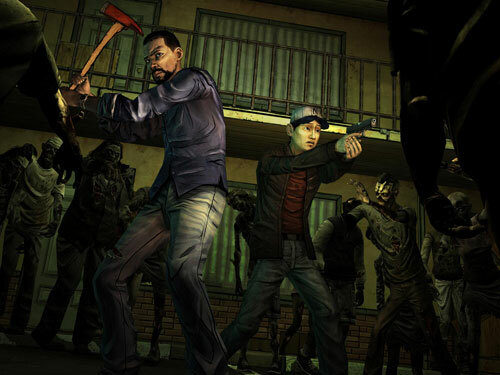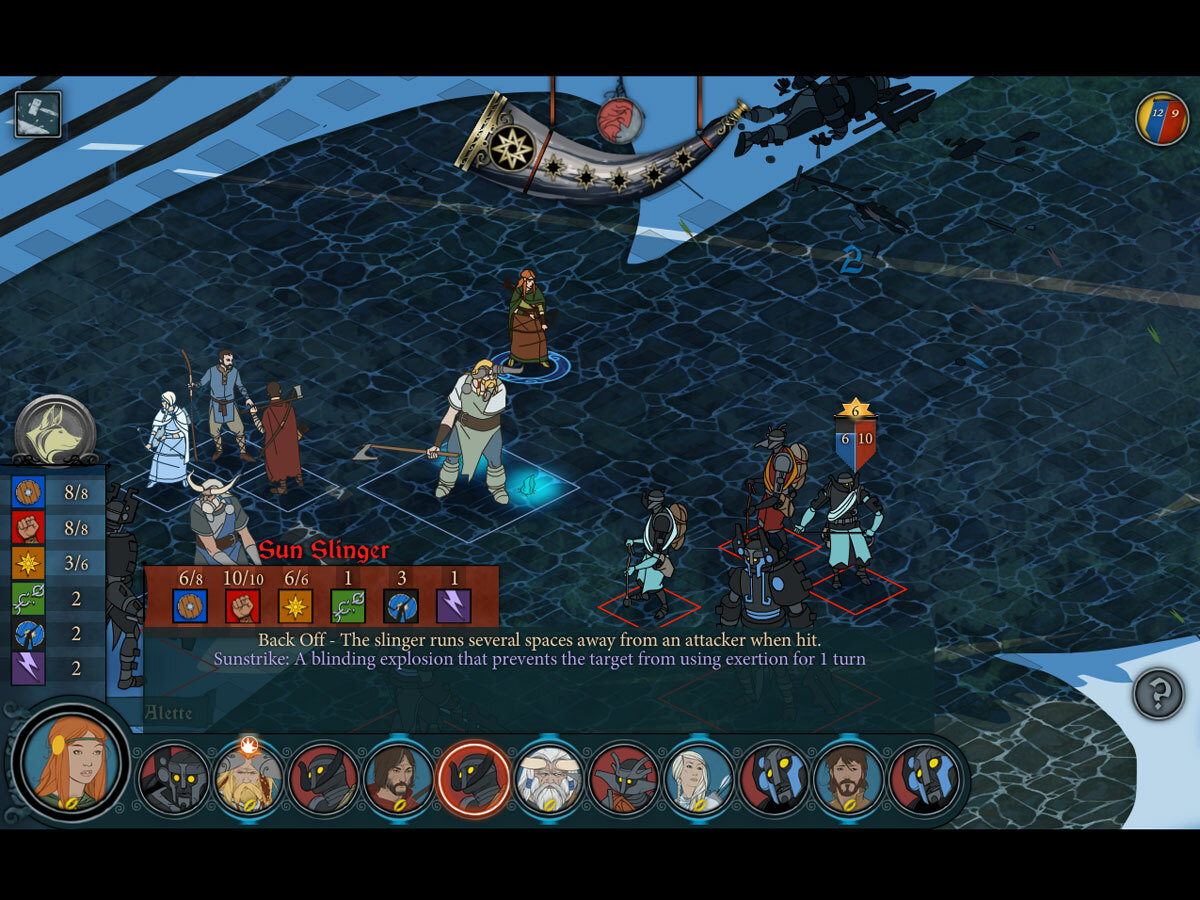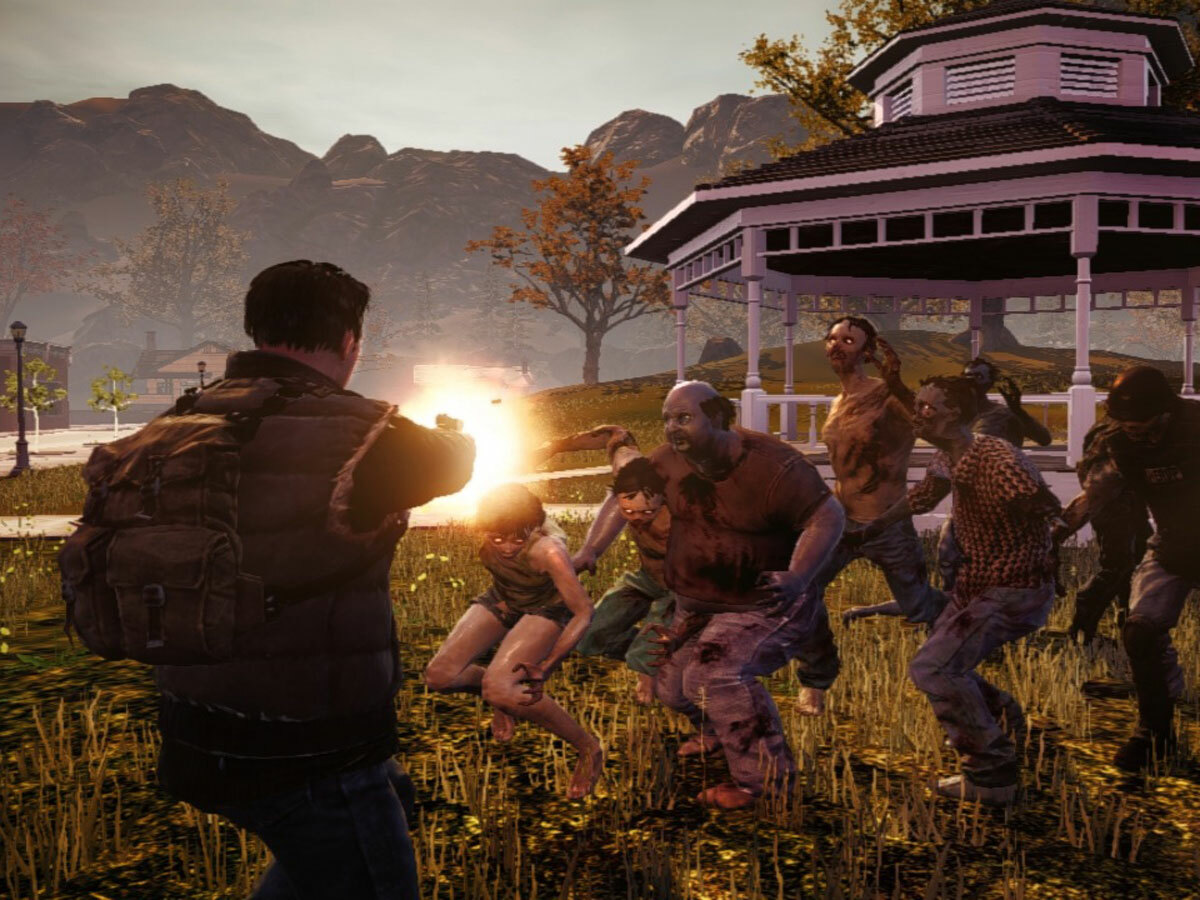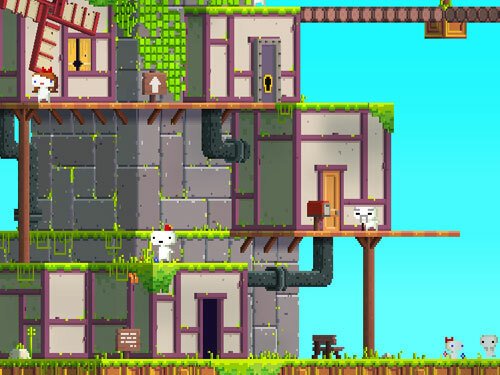20 amazing indie games you can download right now
Got some time to kill this weekend? Then may we humbly suggest you indulge in some of these low-budget masterpieces

Indie games are enjoying something of a renaissance of late, with digital distribution and a general malaise over disappointing big budget titles combining to form the ideal conditions for a resurgence of rejuvenated retro genres and new game types that tell their stories in ingenious ways. Here are some of our favourites.
Gone Home (PC, Mac)
A “first-person narrative exploration” game that casts you as a girl returning from a year of travelling to find her family aren’t home. As she explores their eerie mansion, the story of what has happened to them unfolds through audio narration, visual clues and more. An incredibly engrossing – not to mention emotionally-charged – way to spend a couple of hours.
Surgeon Simulator 2013 (PC, Mac)
If the name conjures up images of delicate keyhole surgery played with a super straight bat, dispel them now. Surgeon Simulator 2013 is a darkly comic LOL-fest in which physics and incredibly tricky controls combine to create dangerous amounts of absurdity as you attempt to perform various feats of surgery. A great game? Probably not. A great deal of fun? Most definitely.
Spelunky (PC, Xbox 360, PS3, PS Vita)
While it might look like another old-school dungeon-crawling platformer, Spelunky is transformed into something truly special by its roguelike elements. What’s that when it’s at home? Well, it means that each level is procedurally generated, so in effect you’ll never play the same level twice. Enemies, ladders, traps and treasure will all be placed differently, and the very layout of the level’s platforms will rarely, if ever, be the same. So if you’re looking for some variety to spice up your life, you’ll find it here.
Luftrausers (PC, Mac, PS3, PS Vita)
A “bullet hell” retro shoot ‘em up in which you pilot a highly customisable airplane – called a “rauser”, Luftrausers is hair-tearingly difficult but maddeningly addictive thanks to its near-perfect controls. Your rauser has three customisable elements, and with a total of 120 possible combinations of weapons, fuselage and propulsion system, you’ll need to tweak it carefully in order to beat each stage.
DayZ (PC)
DayZ‘s is finally finished! Except it’s not – it’s still in Alpha, which means it’s rough as old boots. Even the developers “advise you not to buy and play the game”, but that hasn’t stopped around a million players coughing up already. Why? Because this is the most frightening and “realistic” vision of a zombie apocalypse there’s ever been.
An MMO in which other players are as much – if not more – of a danger than the rampaging undead, DayZ is a grippingly grim, almost nihilistic portrayal of a world gone wrong. Team up with others or go it alone in a 230 square kilometre world in which up to 40 other human players could be lurking.
Braid (PC, Mac, Xbox 360, PS3)
Among the first crop of titles that defines the “new wave indie” era, Braid is a platform game created by the mercurial Jonathan Blow in which the protagonist has to rescue a princess from a monster. So far, so Super Mario Bros. – but Braid‘s innovative techniques both in gameplay (it allows you to rewind time to solve puzzles) and narrative have made it one of the highest-rated games of all time. It makes a perfect introduction to the new generation of indie titles.
The Walking Dead (PC, Mac, Xbox 360, PS Vita, PS3, iOS, Kindle Fire HDX, Ouya)
Few could have predicted a resurgence of the point-and-click adventure genre, but Telltale Games’ multi-episode game set in the world of The Walking Dead (the comic rather than the TV show) showed that people will always flock to great interactive storytelling. Not only does The Walking Dead offer superb writing and relatable characters, it offers the player choices which are genuinely heart-wrenching at times. This is a brutal, nasty world – and your decisions will have some truly harrowing consequences.
Few video games are able to elicit tears of anything but frustration and anger, but many a hardened gamer will find themselves blubbing like a baby come the end of the first five-part “season”. The second season is now well underway, and shows no signs of dropping in quality.
READ MORE: The Walking Dead: Episode One review
The Banner Saga (PC, Mac)

A Kickstarter-funded RPG that blends old school turn-and-tiled-based combat with “caravan management” (that’s more exciting than it sounds, honest) and dresses it all up with gorgeous Disney-esque artwork and epic orchestral music, The Banner Saga is the first part of a projected trilogy.
The game’s Norse-inspired fantasy world is rich and involving and, despite the story being a little more linear than we’d have liked, you’re going to have to make plenty of choices that go way beyond which stats to increase when levelling your characters up. People will live and die on your calls, and The Banner Saga rarely gives you options that are obviously bad or good. It can be an emotional ride.
READ MORE: The Banner Saga review
Papers, Please (PC, Mac)
A game in which you sift through immigration documents all day might not sound particularly compelling, but Papers, Please manages to convey a sense of place, time and desperation better than almost any game we’ve played of late.
Casting you as a lowly border control agent in a fictional dystopian state, it weaves an enthralling story through its portrayal of day-to-day drudgery against the backdrop of social unrest, mass poverty and 1984-style surveillance. Do you let in half a married couple because only one has the necessary papers, or look the other way and risk punishment from your higher ups? Do you take bribes in order to feed your family, or perform your job to the letter and hope the regime rewards your loyalty?
Stamping passports has never been so gripping.
Hotline Miami (PC, Mac, PS Vita, PS3, PS4)
Describing Hotline Miami as a “top-down shoot ‘em up” does it no justice whatsoever. It’s a blood-drenched tour de force that mixes stealth and all-out carnage into a heady brew that’ll have you coming back time and time again.
The gameplay and controls are tuned to perfection, and even at its most maddeningly difficult it’s always rewarding. If you die – and you will, a lot, in horrible ways – it’s probably your own fault.
A brain-mangling story, style in abundance and an evocative electro soundtrack are three cherries on top of an already irresistibly iced cake. Little wonder we’re excited beyond words about this year’s sequel – and also that Hotline Miami made our top 20 greatest games ever made.
Crusader Kings II (PC, Mac)
Where to start with Crusader Kings II? Well, it’s an epic sandbox of a game that spans nigh-on 600 years of European medieval history and looks, on the outside, to be the very pinnacle of the “grand strategy” genre – but really it’s all about family.
Or rather, dynasty. See, rather than take control of a nation, in Crusader Kings II you’re steering the fortunes of a dynasty. Pick a ruler, from a lowly count to an emperor, and you play as that person until they die, at which point you switch to their dynastic successor. That person, let’s say your first-born son, might be a brave, inspiring paragon of virtue. But then he dies whilst on crusade to the Holy Land, leaving his moronic, venereal diseased, scheming and hunchbacked younger brother to inherit your lands and titles. Oh, joy.
The aim of the game? It’s really up to you to set your own goals. From the moment each game begins, it’s procedurally generating a million different stories all over its map, which reaches from Iceland in the west to (with the new DLC) India in the east. Your own tale is just one. Cultures and religions clash, family disputes erupt into murderous feuds, empires and won and lost. It’s truly, truly amazing stuff – once you get the hang of the rather complex mechanics that is.
Oh, and there’s an unofficial Game of Thrones mod which is almost as enjoyable as the “normal” game. But really, there’s no such thing as a normal game of Crusader Kings II.
State of Decay (PC, Xbox 360)

My, there are a lot of zombie apocalypse games in our list, but State of Decay fully deserves its inclusion thanks to being, essentially, the Skyrim of indie games. A large open world is your oyster and, unlike DayZ, there’s at least some semblance of a plot to provide narrative thrust and take the game beyond being a simple sandbox.
Gather a group, hunt for supplies, trade with other survivors and attempt to keep your base safe from the shambling undead hordes. State of Decay is about everyday survival – and inevitable death. The world’s supplies do not replenish, so at some point you’re going to run out of food or medicine or ammunition and then it’s curtains. Unless you trigger the endgame and escape.
It may be a tad rough around the edges, but for a 2GB third-person open world game that costs less than £15, it’s a pretty sweet deal.
READ MORE: State of Decay review
Limbo (PC, Mac, Xbox 360, PS3, PS Vita, iOS)
Dark both in looks and mood, Limbo is a side-scrolling 2D platform game packed with puzzles – but it’s that mood that lingers longest in the memory, rather than the gameplay itself. The mechanics are simple and the story minimal (you play a boy searching for his sister in a dangerous, hell-like world), but the grainy monochrome visuals and frequent gruesome deaths make playing Limbo a gloriously gloomy experience.
Fez (PC, Mac, Xbox 360, PS3, PS4, PS Vita)

Famous for its lengthy development time under the outspoken, perfectionist French Canadian developer Phil Fish (much of which was detailed in the excellent feature length documentary Indie Game: The Movie), Fez is an incredibly smart game that blends 2D and 3D to create a series of increasingly challenging puzzle levels: while the game works on a 2D plane, each level is actually a cube which can be rotated 90 degrees to open up new possibilities.
Its masterfully plotted learning curve and charm have bagged Fez an armful of awards, but sadly it may be Fish’s last ever game: in July 2013 he announced he was quitting game development due to growing disillusionment with the industry.
Prison Architect (PC, Mac)
Remember how we all got a bit bored of all the Theme Park-style games? Well that was a long time ago and we now feel ready to love again, which is why Prison Architect has already made over $8million despite still being in bug-riddled Alpha. Build a prison and incarcerate crims, but treat them too badly and you’ll have a riot on your hands.
Don’t Starve (PC, Mac, PS4)
As the name suggests, Don’t Starve is a game concerned with survival: the aim is simply to stay alive in a dangerous wilderness for as long as possible by gathering useful items, camping by fires, finding food and avoiding both dangerous enemies and encroaching madness. Each day lasts around ten minutes of real-time, and surviving the pitch-black nights will be your biggest challenge.
Difficult and unforgiving it may be (it features “permadeath”, so you’ll have to start a new game every time you perish), but the game’s charming graphical style, music and presentation keep things from being overbearingly grim – and the challenge holds plenty of thrills.
Minecraft (PC, Mac, Xbox 360, Xbox One, PS3, PS4, PS Vita, Wii U, iOS, Android)
Probably the most successful indie game of all time, Minecraft is barely a game at all. Sure, it has its roots in a challenging survival mode in which you build defences by day to ward off nocturnal attackers, but many players disregard this in order to indulge their creative urges by building huge, complex structures from blocks. From scale models of real life buildings like Notre Dame to imaginary cities like Game of Thrones‘ King’s Landing and even entire planets, Minecraft players have been responsible for some truly jaw-dropping creations.
Journey (PS3)
Despite bagging several Game of the Year awards, it’s debatable whether Journey is a game in the traditional sense or more closely a piece of interactive storytelling. Whatever the answer, it’s a beautifully made and presented adventure which everyone who owns a PlayStation 3 should play through at least once. And given that an entire playthrough takes a mere two to three hours, there’s really not much excuse.
One of Journey‘s most endearing features is that your travels aren’t undertaken alone. During each stage of the game you may find yourself accompanied and aided by another human player, with whom you won’t be able to communicate beyond patterns of singing. You won’t know their identity, but you’ll be able to cooperate – how heart-warming is that?
The Stanley Parable (PC, Mac)
A pioneering interactive story which we’re reluctant to discuss in anything but broad stroke for fear of spoiling it for you, The Stanley Parable plays with the conventions of narrative and choice in a succession of clever ways. Originally produced as a mod for Valve’s Source engine, it has now been rereleased as a standalone high-definition remake.
Starbound (PC, Mac, PS3, PS4, PS Vita)
If you’ve played Terraria, imagine that with a galaxy-spanning sci-fi scope and you’ve got Starbound. If you’ve not played Terraria, imagine a side-scrolling version of Minecraft. You mine, you build, and you survive, but here you also build tech to take you to distant planets and fight flying saucer-piloting penguins. Yes, really.
At the time of writing, Starbound is still in beta and available only as pre-release version.



